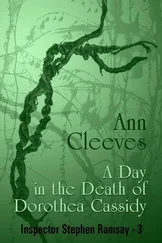Easy .
Joe drove to the Hope North-East office in Bebington. The visit had been at his suggestion, when Vera had planned the action for the day. Shirley’s name hadn’t been given to the media and he hoped word hadn’t got out yet. He wanted to tell the volunteers himself that their boss was dead. He wanted to see their reaction. ‘They run some sessions on a Saturday, so the volunteers might be around.’
He was surprised to find the office open; he’d assumed that Shirley would be the only key-holder and had expected to find people waiting for her on the pavement. Upstairs the skinny volunteer described by Holly was filling the kettle. She heard his footsteps on the stairs and sang out, ‘Just making a brew.’ She obviously hadn’t heard about Shirley’s death.
When she turned and saw him, she was thrown. Suddenly anxious about having to deal with a stranger. ‘Shirley’s not in yet. She shouldn’t be long. I thought you were her.’
‘I’m afraid she won’t be coming in.’ Joe was speaking to her as if she were a child. He’d grown up with women like her. Nervy and fragile, surviving on anti-depressants, afraid of the world.
‘Why? What’s happened?’ She was trembling. He thought anything out of the ordinary would scare her and that she’d known he was police from the moment she saw him.
‘I think you should sit down.’
She was used to doing what she was told and took the seat at her desk.
He pulled up another chair, so that he was on her level. ‘There was an incident last night. I’m afraid Shirley’s dead.’
‘No!’ It came out as a wail of grief. One thing was certain. This woman had had nothing to do with Hewarth’s murder. He’d seen people less upset by the death of a close relative or partner.
‘When did you last see her?’
‘Yesterday afternoon.’ Sharon was ripping a tissue into shreds. The pieces formed a small mound on the desk in front of her and she gathered them up in her palm, trying to roll them together like a snowball. ‘She asked me to lock up, because she had a meeting.’
‘You weren’t in when I came to chat to Shirley.’
‘No,’ she looked up at him. ‘Our bairn had a hospital appointment. He’s got terrible asthma. Usually his nana minds him, but I wanted to take him for the tests myself. I’m only a volunteer, so there’s never any problem about taking the time off. I came in later.’ Her voice tailed off as if she realized that, in the scheme of things, none of this was important.
‘What time did you get back?’
‘About three-thirty.’
‘And when did Shirley go out?’
‘Not long after. It was as if she’d been waiting for me to come in so that she could get off.’ Sharon looked up at him. ‘What happened to her? An accident in her car?’
Joe shook his head. ‘We’re treating her death as suspicious.’ He paused for a moment. ‘Where was she going?’
‘I don’t know.’
‘Was that unusual?’ Still Joe kept his voice gentle. He had the sense that the woman was on the verge of an emotional meltdown, that Shirley and her work at Hope was all that was keeping her together. ‘I mean, did she usually tell you where she was going?’
‘She wrote down the addresses of all her visits in the big diary,’ Sharon said. ‘Health and safety. Some of our clients could be aggressive. I wanted to know where she was going. Just in case.’
Joe thought the volunteer might be emotionally frail, but she wasn’t stupid. ‘And did you have a system where she phoned in after the visits? So you’d know she was safe?’
‘She didn’t phone,’ Sharon said. ‘She’d always text. After each client. Visit over. Then the time.’
‘So she must have texted yesterday then. Because you didn’t panic and call us out.’ He gave a little smile to show it was almost a joke.
‘No!’ Sharon looked at him as if he was stupid now, as if he’d got hold of the wrong end of the stick altogether. ‘Shirley wasn’t going out on a work visit yesterday afternoon. It was personal. When she left, she said, “That’s me for today. I’m taking back a bit of lieu-time. See you tomorrow.” And she collected her coat and went out.’
‘You don’t know where she was going?’
‘We didn’t have time to chat.’ Sharon looked up at him and her narrow face seemed more pinched and grey than ever. ‘I was sorry about that. I’d wanted to tell her about Aidan and the asthma tests. She’s the only person I can talk to about stuff like that. My mam just says he’ll grow out of it and that I’m ruining him by fussing.’ A pause. ‘I don’t know what I’ll do without Shirley – what any of the folk at Hope will do without her.’
‘How did she seem last week?’
There was a long pause before Sharon replied. ‘Not herself.’ Joe didn’t say anything and at last she continued, ‘Before she was always such a laugh. I mean, she was serious about her work, but she could have run this place standing on her head, so she never stressed about it. She’d been a senior probation officer, managing a whole team. She’d worked in a prison with lifers, and had to stand up in court to give evidence about hard-core clients. Nothing threw her. Nothing worried her. Not usually.’
‘But recently she’d been worried?’
‘At first I thought she was just upset, like. With Martin dying. We all loved Martin. I mean he was a bit weird. A bit of a geek. But he had a good heart.’
‘But later you thought something else was troubling her?’
There was another silence as Sharon chose her words carefully. This was a witness who needed patient handling. ‘After Martin died she got snappy. The least thing and she’d fly into a temper. And that wasn’t like Shirley. Like I said, usually she was a laugh. Easy to get on with.’ She looked out of the window. A small group of teenagers had gathered for a smoke on the pavement. Presumably soon they’d try to come in for a session, expecting to find Shirley here to run the show.
‘And she didn’t give you any idea what was bothering her?’
‘I did ask her,’ Sharon said. ‘She said it wasn’t anything she couldn’t handle. “And nothing that’s not my own fault.”’
‘What did she mean by that?’ Joe was finding this conversation tantalizing. All second-hand. All the impression of a woman who had plenty of problems of her own.
‘I don’t know. She wouldn’t say.’
The crowd on the pavement was growing and he knew he’d soon have to go down and tell them that the centre would be shut for the day. The CSIs would want to come in for a search. The computers would be taken. Then Sharon would lose concentration and start telling herself stories about Shirley, trying to make sense of the woman’s death by forming a narrative. There’d be gossip all over the town. The first response to news of her death would be lost.
‘Any of her clients have a grudge against her?’
‘No!’ Sharon was on the verge of tears again. ‘We all loved her.’
You all loved Martin, and he’s dead too. What does that tell us?
‘Can I see the diary, the one where Shirley wrote down her appointments and the addresses of her visits?’
Sharon reached under the desk and pulled out a big hard-backed notebook. She was pushing it across to Joe when there was a sudden noise on the stairs, the clatter of boots, the door pushed open. Frank appeared; his face was red and his huge tattooed fists clenched, as if he was about to hit something or someone.
‘I’ve just heard that Shirley’s dead. That some bastard’s killed her.’
Vera was on the phone to Alicia Randle. Before making the call she’d planned a gentle enquiry about any possible reason why Alicia or her son might have written to a former probation officer who ran a ragbag charity in an ex-pit-village in Northumberland. But when the phone was answered, Vera found herself asking a very different question.
Читать дальше












